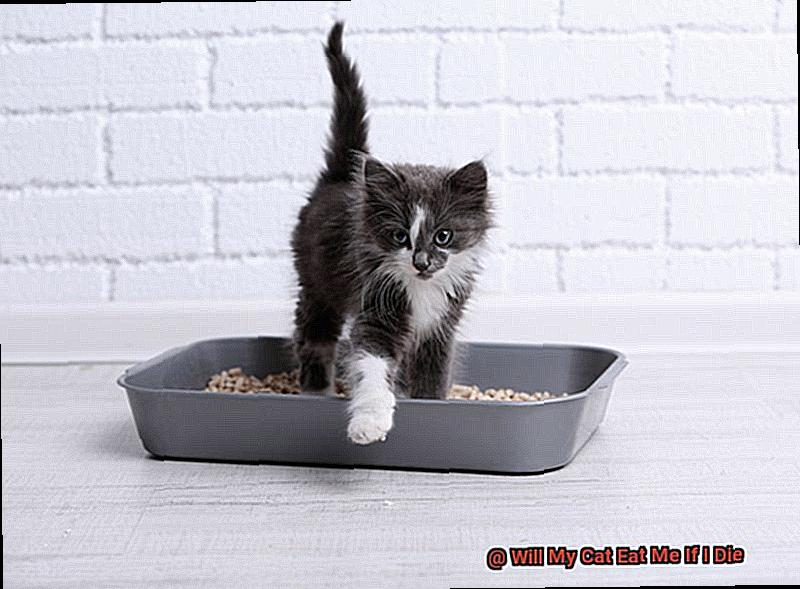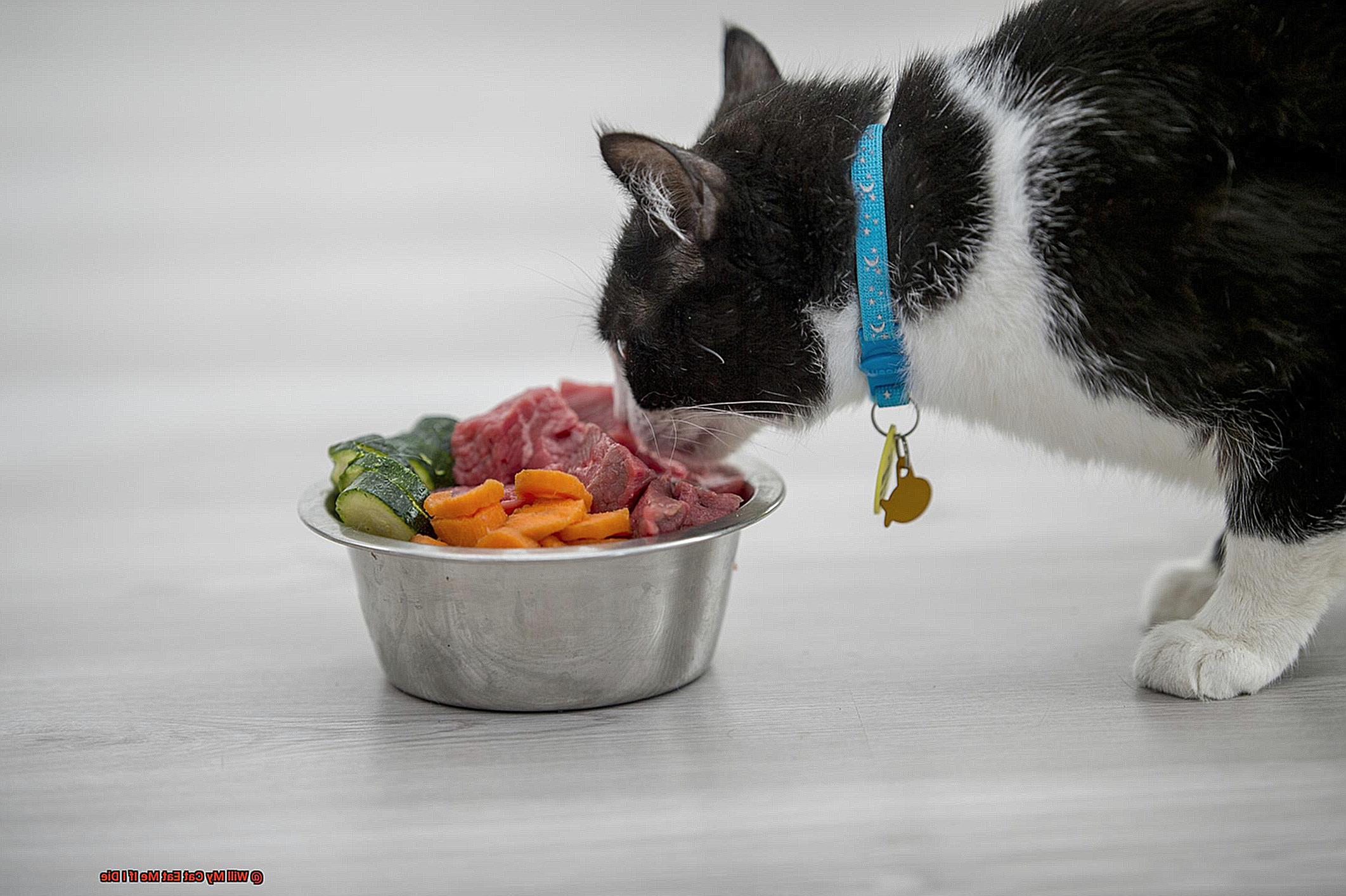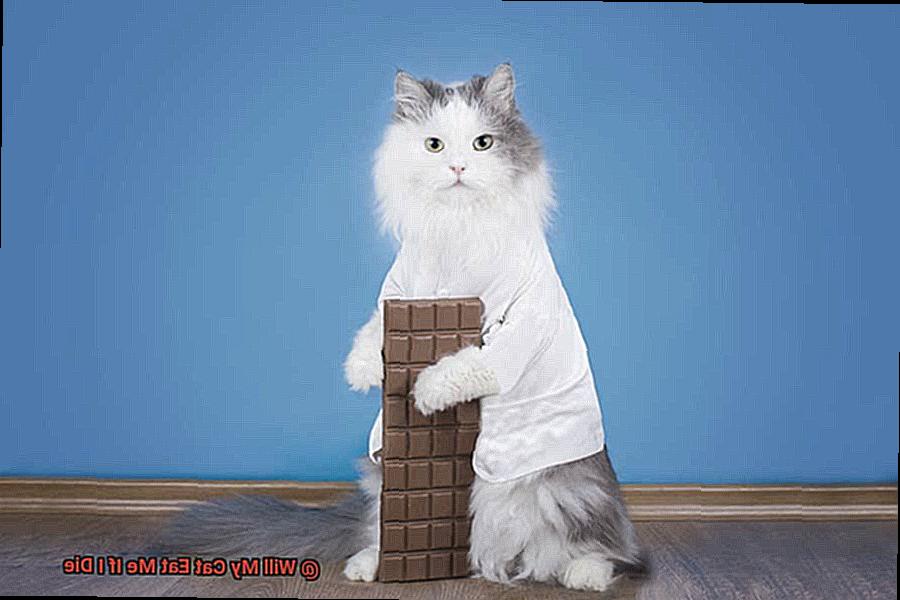Have you ever pondered the macabre question of whether your feline friend would resort to cannibalism if you were to pass away in your home? This unsettling thought has likely crossed the minds of many cat owners, but the answer is far from straightforward.
The question of whether or not a cat would eat its owner after death raises important discussions about our complex relationships with animals and how instinct can play a crucial role in their behavior.
Despite their reputation for aloofness and independence, cats are actually social creatures that heavily rely on their owners for sustenance and affection. However, this dependence can also lead to confusion and anxiety when their caregivers suddenly disappear. In such a vulnerable state, some cats may resort to desperate measures to survive.
While it’s not common for domesticated cats to resort to eating their human companions after death, it’s not unheard of either. Predation is an innate instinct for cats, and in the absence of readily available food sources, some may turn to this behavior as a last resort. Additionally, cats may also indulge in this behavior out of boredom or anxiety.
In this blog post, we’ll delve into the intriguing world of feline behavior to help answer the question that haunts many cat owners: “Will my cat eat me if I die?” We’ll explore the science behind feline predation, the factors that can influence their behavior, and what steps you can take to prevent your beloved pet from resorting to drastic measures if anything were to happen to you.
So if you’re curious about the darker side of cat behavior and want some peace of mind regarding your furry companion’s loyalty, read on.
Cats are Natural Predators
Whether they’re housecats or wild cats, their natural instincts drive them to chase and pounce on any moving object that catches their eye. This behavior is ingrained in their DNA and has been passed down through generations of felines, making cats natural predators by birthright.

Now, let’s address the question at hand. Would a cat eat its owner if they were to die? While it is true that there have been rare cases of domestic cats consuming their deceased owners, this behavior is not typical or expected.
In most cases, a cat would not resort to eating its owner unless it was in an extreme state of hunger and had no other source of food available. Even then, a cat’s natural instinct when faced with a dead body is to avoid it rather than to consume it. So, while it’s always important to take precautions and ensure that your pets are well-cared for in the event of your death, it’s also important not to panic or assume the worst-case scenario.
It’s worth noting that cats often consume their prey in stages. They may first eat the soft tissues such as the eyes, nose, and mouth before moving on to other parts of the body. Therefore, even if your cat does eat you after death, it may not consume your entire body.
However, if your cat is well-fed and has access to food and water, there is little chance that it will resort to cannibalism after your death. In fact, cats can be incredibly loyal and protective of their owners. If they feel that their owner is in danger or distress, they may attempt to “help” by nudging or pawing at them. In some cases, this may lead to the cat accidentally causing harm or even death to their owner.

In conclusion, while it’s possible for a cat to eat its owner after death, it’s relatively uncommon and highly dependent on specific circumstances. As long as your cat has access to food and water and is well-cared for, there is no need to worry about this scenario.
Loyalty and Protection
It is true that cats are natural hunters and can be quite territorial. They may hiss or swipe at strangers who invade their territory, including potential predators. However, when it comes to protecting their owners, the extent of a cat’s loyalty and protection is debatable.
Some cats may display protective behaviors towards their owners, such as standing guard or staying close by when they sense danger. These devoted felines are fiercely loyal and will do whatever it takes to keep their humans out of harm’s way. However, other cats may simply flee or hide in the face of danger, leaving their owners vulnerable.
The notion that cats have no sense of loyalty and will only stick around as long as they are fed is a common misconception. In fact, many cats form strong bonds with their owners and will go to great lengths to protect them. Nevertheless, the extent of their loyalty and protection is highly dependent on each cat’s unique personality and temperament.
It’s essential to remember that even if a cat does display protective behavior towards their owner, this does not necessarily mean they would not eat them if they were to die. This instinctual behavior to consume dead flesh is deeply ingrained in cats and should never be ignored.
It’s crucial to keep this in mind and have a plan in place for your pet’s care in the event of your passing. This includes ensuring they have enough food and water to survive and finding someone you trust to take care of them.
Eating Habits of Cats
This means that their diet must consist of a high protein and fat content to keep them healthy and satisfied. In the wild, cats hunt for small prey such as mice, birds, and insects, while domestic cats rely on commercial cat food specifically designed to meet their dietary needs.
Cats have a reputation for being finicky eaters. They prefer their food fresh and at room temperature, and variety is key to keeping them interested in their diet. A balanced diet including both wet and dry food is crucial to ensure your cat’s health. Wet food provides hydration, while dry food helps keep their teeth clean.
It’s worth noting that cats are not scavengers and will not eat anything that has been dead for too long. In the unfortunate event of a sudden owner passing, a cat may become hungry and attempt to find food. However, they will not resort to eating their owner’s body as they are not scavengers. It’s important to have a plan in place for your pet’s care in case of an emergency.
So, knowing your cat’s dietary requirements and preferences is vital for their well-being. Providing them with fresh and varied food options will ensure they are happy and healthy.
While cats may display protective behaviors towards their owners, it’s crucial to have a plan in place for their care in case of an emergency.
Rare Scenarios and Dependent Circumstances
While this may sound alarming, it’s important to understand that this is not a common behavior among feline companions. However, there are rare scenarios and dependent circumstances that may influence a cat’s behavior towards eating their deceased owner.

One such scenario is if a cat is trapped or confined and has no other source of food. This could happen if the owner dies suddenly and the cat is unable to leave the home or access food elsewhere. While highly unlikely, it would require a number of specific circumstances to align in order for it to occur.
Another factor that could impact whether or not a cat eats their owner is their overall temperament and behavior. Some cats may be more prone to displaying aggressive or predatory behaviors, while others may be more docile and less likely to engage in such behavior.
Other factors such as hunger, lack of socialization, and stress levels may also play a role in determining whether or not a cat resorts to cannibalism.
However, it’s important to remember that as long as your cat is well-fed, properly socialized, and not placed in any extreme situations, there is little reason to worry about such an outcome. As responsible pet owners, we should focus on providing our cats with proper care and attention to ensure their wellbeing.

While it’s always important to have a plan in place for pet care in the event of sudden death, the likelihood of your cat resorting to cannibalism is extremely low. So don’t let this rumor scare you away from giving your feline companion the love and care they deserve.
Access to Food and Water
While this is a rare occurrence, it’s crucial to understand that access to food and water plays a vital role in preventing this scenario from ever happening.
Domestic cats are natural hunters and killers, but they also rely on their owners to provide them with nourishment. If their owner were to die suddenly, a cat’s survival instincts may kick in, driving them to seek out alternative sources of food. This makes access to food and water incredibly important in preventing this scenario from ever happening.
It’s essential to note that cats are opportunistic feeders, meaning they will eat whatever food is available to them regardless of whether it’s their preferred choice. So even if a cat has access to food and water in their owner’s absence, they may still resort to eating their deceased owner’s body out of desperation.
To prevent this terrible scenario from ever happening, it’s crucial for cat owners to ensure their pets have easy access to plenty of food and water at all times. This includes setting up automatic feeders and water dispensers, stocking up on an adequate supply of cat food, and removing any potential hazards that could cause harm or injury to the cat from the home.
Building a strong bond with your furry friend through regular interaction and playtime is also vital. This helps establish trust and reinforces the cat’s reliance on their owner for care and protection. By taking these precautionary measures, you can ensure that your pet is well-cared for in the event of your untimely passing.
Understanding Animal Behavior
It’s essential to consider the natural instincts and behaviors of our feline friends.
Firstly, cats are obligate carnivores, which means that they require a diet rich in meat to survive. Although domesticated cats are usually fed by their owners, their innate instinct to hunt and consume prey still persists. So, in theory, a hungry cat may turn to devouring their deceased owner’s body as a source of sustenance.
However, it’s important to note that this behavior is more likely to occur out of desperation or confusion rather than a deliberate choice. Cats also possess social instincts and require some level of interaction with other beings. This can be observed in their grooming behaviors with other cats and even with their owners.
Therefore, while it’s possible for a cat to eat their owner’s body after death, it’s not the most plausible scenario. In most cases, a cat would not resort to cannibalism unless they were in dire circumstances where no other source of food was available.
Understanding animal behavior is crucial when it comes to addressing this question about cats’ potential behavior after their owner’s death. While it may seem like a disturbing topic, having a basic understanding of animal instincts can help alleviate fears or concerns about this possibility.
So, it’s important to provide your furry friend with access to food, water, and social interaction to prevent any desperate measures in the event of your untimely passing.

Instincts and Survival Strategies
While this may seem like a macabre thought, it’s important to understand your cat’s instincts and behaviors to ensure their well-being in case of such an unfortunate event.
Cats are known for their independence and predatory instincts. They are opportunistic feeders who will eat whatever they can find or catch. However, studies have shown that cats are not likely to eat their deceased owners. Instead, they may try to wake them up or nudge them for attention or food.

Nevertheless, there have been rare cases where a cat, trapped and unable to find other sources of food, has resorted to eating their deceased owner out of desperation. Therefore, it’s crucial for pet owners to make arrangements for their pets in case of an unexpected death.
One solution is to ensure that there are other sources of food available for the cat, such as leaving out bowls of dry food. Alternatively, pet owners could make arrangements for someone else to care for the pet in the event of their passing.
It’s essential to provide your pet with access to food, water, and socialization to prevent any drastic measures in the event of your passing. By taking these precautions, you can give yourself peace of mind and ensure that your cherished companion is well taken care of even after you’re gone.
_nF_47PL4pE” >
Safety Measures for Cat Owners
Whether it’s by providing proper nutrition, keeping a clean home, or having an emergency plan in place, there are several key safety measures for cat owners to keep in mind.
First and foremost, make sure your cat has access to plenty of food and water. This not only keeps them healthy but can also prevent them from resorting to desperate measures if you suddenly pass away or are unable to care for them.
A clean litter box is also essential for your cat’s wellbeing. Not only can a dirty litter box lead to health problems, but it can also cause your cat to act out in unusual ways. Regularly cleaning the litter box and keeping it in a clean, accessible location is crucial.
Another important safety measure is keeping your home free of potential hazards or toxins. This includes locking away cleaning supplies and medications and ensuring that all plants in your home are safe for cats to be around.
Lastly, have an emergency plan in place. You never know what life may throw at you, so it’s important to be prepared for any situation. Whether it’s designating a trusted friend or family member to care for your pet or enrolling them in a pet care program, having a plan can give you peace of mind.
Also Read: Should I Force Feed My Dying Cat?
Conclusion
In summary, the question of whether your cat would eat you if you die is not a straightforward answer. It depends on various factors such as the cat’s personality, breed, and access to food sources. However, it’s essential to understand that cats are natural predators with instincts that drive them to hunt and prey on smaller animals.
As responsible pet owners, we must take necessary precautions to ensure our feline friends’ safety and well-being in case of an unexpected event. This includes providing them with proper nutrition, clean water, and social interaction. Additionally, keeping a clean home free of potential hazards or toxins is crucial.
It’s important to remember that while cats may have a predatory nature, they also make loving and loyal companions. By understanding their behaviors and providing them with the care they need, we can build strong bonds with our furry friends that will last a lifetime.

